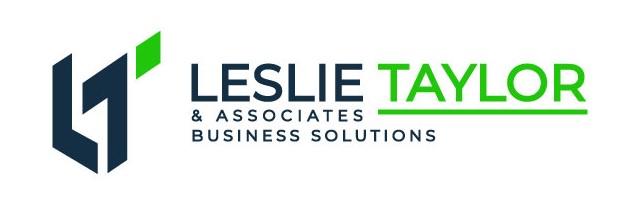So, you’ve made it through the rollercoaster ride of another year with your small business. But wait, you’re not done yet! The end of the year is extremely important to small businesses, as you’re reflecting on what went right, what went wrong, how to close out the year successfully, AND plan for a prosperous new one.
Last December, I talked about 8 things small businesses should do at the end of the year to be in a better financial space for the year to come. Well, how about part two?
Let’s dive into a chat about budgeting, forecasting, 1099 prep, and why that end-of-year heart-to-heart with your tax pro is a game-changer for your future success.
It’s time to dream big and set financial goals. Think about what you want to achieve in the next year. Whether it’s boosting your bottom line, trimming the fat from your expenses, or taking your business to new heights, make those goals specific, measurable, and right in line with your grand plan.
Roll up your sleeves and get ready to conquer some financial goals in the new year!
Profitability Roadmaps
If you’re dreaming of a product or new service launch, your profitability roadmap (aka budget) needs to lay out every dime for research, development, supplies, new software, and marketing. No, it won’t be perfect, but doing your homework upfront will make it easier to hit and exceed your profit goals.
Money’s where the magic happens, right? It’s the fuel that keeps things running. When you’re budgeting, be a bit of a money detective. Take a good look at where those dollars are going. Find out where you’ve been splurging or where you can trim the fat. Maybe it’s time to renegotiate with suppliers, cancel unused services or those not providing a good return, reduce spending (because maybe revenue can’t support it at this time), or scout for cheaper alternatives.
By keeping tabs on your expenses, you’re making sure your budget aligns with your goals and that you’re making profitable decisions like a true CEO. Want to hear more about budgeting? Check out last month’s blog, The Power of Small Business Budgeting (Don’t Be Like Terri) where I go more in-depth about Profitability Roadmaps (aka budgets) and how to easily create one.
Forecasting: It’s NOT Magic!
Do you ever wish you had a crystal ball when it came to the future of your business’ finances? We all do!
Do you wish you had something to answer questions like:
- “Can I afford to hire this person so I can scale and grow my business?”
- “When will I have enough money to pull the trigger on that expensive new piece of equipment?”
- ”When can I pay myself a real salary?”
These are all questions that I hear often from both new clients and small business owners in general.
While I don’t exactly have a crystal ball – I do have the next best thing:
Forecasting is not magic, but it can help you ditch the ‘hope-and-pray’ method of decision-making so you can make profitable decisions.
Forecasting is a way of using your past and current financial history to estimate future revenues, expenses, profits, and cash flow in your business. This is a time when you put your vision to numbers. Sounds dreamy doesn’t it?
Analyze The Past
Think of this process like going down memory lane. To predict your financial future, you need to dig deep into your past. Study the numbers and how well your business did in previous months and years. What were the high points? What brought in the most money? What threw your cash flow for a loop? Knowing your history helps you make smarter decisions in the future.
Scenario Planning
Forecasting isn’t about making one wild guess and hoping for the best. It’s more like having a backup plan (or two, or three). Create different scenarios – like worst-case, most likely-case, and we did that! case – based on different assumptions. It also allows you to imagine that new hire or that new piece of equipment, and perhaps anticipate needing funding or 10 new clients in order to stay profitable.
By using this tool, you’re more prepared for whatever twists and turns the future might throw your way. For example, if your business sails into a stormy sea of market ups and downs, having multiple scenarios helps you navigate those choppy waters. By having a we did that! case you have a stretch goal for you and your team.
1099 Preparation
Hiring freelancers and contractors is something almost every growing business does at some point. If done correctly it can help you get more done in your business and can help you make more money.
If you hired contractors, you may need to file a 1099 with the IRS for each of the contractors hired. It can be a real pain coming back from the holidays in January trying to hunt down documents, then calling clients to have them find and send you the documents—did I mention there is a deadline and penalties may apply?
Let’s not do that.
So, here is what you need to know and do to be prepared BEFORE January.
- January 31, 2024 is the 1099 NEC filing deadline. Form 1099 MISC must be filed by February 28.
- While filing may seem straightforward, recent changes over the last few years have made it not-so-straight-forward (why do they have to complicate things?!?).
- If you hired freelancers or contractors (non-employees) and they performed more than $600 worth of work for you in a calendar year, you need to collect a W-9 form from those businesses and individuals. Those fancy W-9 forms should contain their taxpayer IDs (employer identification number OR social security number). Do this step now before the end of the year.
- NOTE: You may or may not need to file a form 1099 for a contractor even if #3 above applies. Whether you need to file will depend on several factors including how you paid them (ACH, cash, credit card, etc.) and their business’s legal structure (found on the W9).
- If you do contract work in your business, you should provide a W9 to your clients based on the above (ignore this step if you are a corporation, or elected to be taxed as a corporation— S-corp).
What do you do next?
You did your part by collecting the W9s. I recommend businesses consult a financial professional to determine whether a 1099 is needed. Major issues can arise (penalties, fees) when a 1099 is issued and not needed as well as when a 1099 is not issued but needed.
Speak with Your Tax Preparer
Finally, here’s the ace up your sleeve. Chatting with your tax pro before the end of the year can be a game-changer. They can help you with tax-saving strategies and make sure you’re knowledgeable about tax rules before the year ends while you can still take action (remember tax strategy for 2023 happens before December 31!). Plus, they’ll give you financial guidance to set you on the path to success.
Prepping your small business for the new year is like getting ready for a grand adventure. Budgeting sets the goals and keeps an eye on spending, and forecasting is like a crystal ball, preparing you for future possibilities. Remember to gather your documents this year so you are prepared to file those 1099s in January. Most importantly, make that date with your tax pro. You’re all set to rock the next year, and positioned to anticipate whatever surprises it throws your way!
Need help taking these end-of-year tasks off your to-do list? We’re here to help. As business solutions experts, we have helped dozens of businesses untangle complex issues and clarify a path to greater profitability. Schedule a Discovery Session to learn more.

